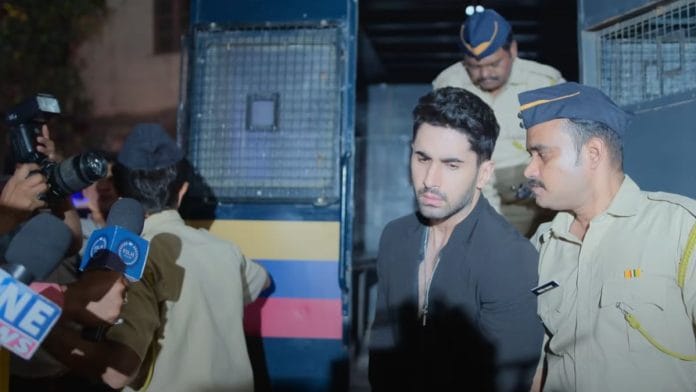Aryan Khan promised to showcase the raw, unfiltered side of the Hindi film industry in The Bads of Bollywood—unapologetically. And he has delivered every bit on that. From movie mafias, nepotism, plastic surgeries to paid paparazzi, and even the industry’s long-standing ties with the underworld in the 90s and early 2000s, the series doesn’t separate Bollywood from its dirty past and present.
While Aryan avoids a grim, gritty portrayal of the underworld like in Vaastav or Company and his depiction remains subtle. The debutant director doesn’t dilute the influence ‘D company’ wielded on the industry.
In the 1990s, Bollywood was deeply entangled with the underworld. Refusal to comply a Dawood Ibrahim, Chhota Shakeel, or Abu Salem had a steep costs— extortion, threats, and in some cases, murder. They had immense influence over casting, financing, and even scripts. The 1997 assassination of Gulshan Kumar, allegedly for refusing to pay protection money, remains one of the most chilling examples.
In The Bads of Bollywood, Arshad Warsi plays Gafoor, an underworld don who offers protection, but at a price. Aryan cleverly explores how actors, caught between exploitative producers and financial desperation, often turned to such figures for help, only to find themselves trapped in deeper obligations.
One such subplot follows Aasman’s friend Parvaiz (played by Raghav Juyal), who has ties to Gafoor’s men. When Aasman is cornered by a producer threatening legal action, Parvaiz turns to Gafoor. The don has the producer beaten and forcibly signs him off the contract. Later, when Aasman and Parvaiz get into a pub fight, Gafoor’s men come to their rescue yet again. After which, one gangster says, “Gafoor bhai ke do ehsaan ho gaye tere par,” hinting at the unspoken debt that now binds them.
With Aasman’s abduction from the middle of the road as he is headed to his home captured how the situation was back in time.
As the story progresses, Aasman is forced to repay that debt, by starring in a film written Gafoor’s daughter, despite having committed those dates to a Karan Johar project. Bollywood of the 1980s and 1990s is full of such anecdotes.
Also read: Bads of Bollywood peppered with SRK magic—‘Palat’, ‘Badshah O Badshah’, Om Shanti Om
When SRK got a call from Dawood
Aryan uses this storyline to subtly highlight a harsh truth: favors from the underworld always come with strings attached.
Aryan’s father and superstar Shah Rukh Khan was also once threatened by the gangsters. In the 1990s, at the peak of underworld influence in Bollywood, SRK faced threats from gangsters, including calls from the Dawood Ibrahim gang.
As his stardom rose, so did the pressure to comply with underworld demands, ranging from doing films with certain producers to attending events. Unlike many others, SRK refused to bow down to these pressures.
In interviews, he admitted to receiving intimidating calls but stood his ground, refusing to be manipulated. His refusal to succumb, despite potential danger, earned him widespread respect.
However, Aasman in The Bads of Bollywood isn’t as courageous.
After being boycotted by the industry and left with no options, he is forced to turn to Gafoor, who offers him a film.
The series ends with a stark reminder of how desperation, especially in Bollywood, can lead and would have led in the past even the most promising actors into dangerous compromises.
Views are personal.
(Edited by Anurag Chaubey)






